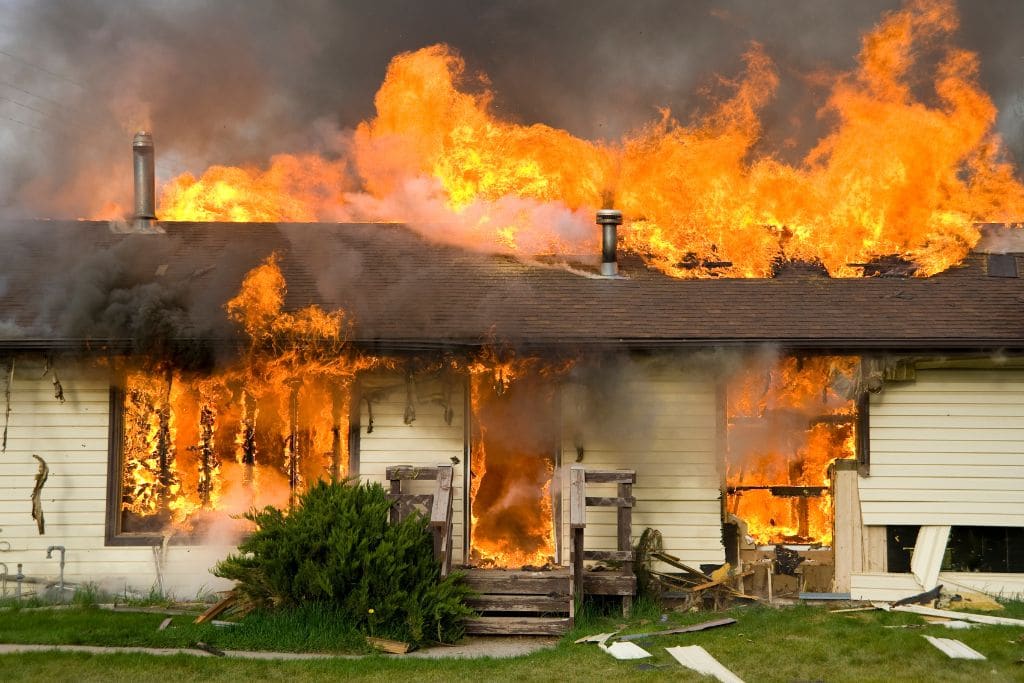1 in 10 residential properties in the United States was impacted by natural disasters in 2021 alone. The climate crisis has exacerbated economic and social disparities within the country, directly affecting the human right to adequate housing. The links between climate change and the affordable housing crisis are clear. Local-level action is therefore necessary to remedy this housing shortage and to offset the effects of climate change. A homeowner recovering from a natural disaster, and a policy expert weigh in on the matter.
—
Charles Coleman lives in Princeton, Kentucky, a town of approximately 6,000 people. In December of 2021, a tornado razed his home to the ground, leaving him and his family with nothing more than six bags of clothes. Across the state, several counties were devastated and more than 70 people lost their lives.
Harsh weather conditions and labour shortages have significantly delayed the lengthy reconstruction process; rebuilding projects did not get started until the end of March 2022. Fortunately, Coleman’s house was insured. Yet listing everything lost in the tornado is a daunting task, he explains, especially when the claims adjuster is overly meticulous. Insurance companies across the United States are re-evaluating their risk modelling practices as frequent natural catastrophes are increasing insured losses. Consequently, insurance is becoming prohibitively expensive for some Americans. Coleman is currently living in a recreational vehicle (VR) paid for by his insurance, as there were no apartments available for him and his family to rent.
The average cost of building a new home has increased 30-40%, he explains. According to Coleman, building materials were getting more expensive even before the tornado, but this event aggravates the rise in prices. He appears to be facing this tragedy with remarkably good spirits. But unfortunately, this is an experience that many Americans must endure yet some cannot recover from.
According to a recent report, over 14.5 million homes across the United States were affected by severe natural disasters in 2021, including hurricanes, wildfires, winter storms, and flooding. The report analysed 13 major hazard events that hit the US over the past year and estimated a total of USD$56.92 billion in property damage. These are striking figures and the communities impacted are often unable to cope with the resulting financial burdens. Amongst them, low-income renters are especially vulnerable to extreme weather events.
A notable example is the city of Houston, Texas, where government-subsidised housing was built in flood zones at a time when society lacked widespread understanding of the nature and extent of physical risks associated with climate change. The city has a long history of extreme rainfall events, including Hurricane Harvey in 2017, which triggered catastrophic flooding that left one-third of Houston underwater. The storm affected 13 million people across the US and 39,000 were forced out of their homes. Following this tragic event, low-income residents in Houston filed a lawsuit against the US Department of Housing and Urban Development for placing them in a highly dangerous environment – one that they cannot afford to escape. A study by the National Bureau of Economic Research shows that middle-and higher-class neighbourhoods affected by severe natural disasters have been experiencing an out-migration rate increase as housing prices drop. Higher-income residents can move to safety, while lower-income individuals have no choice but to stay or move into the affected areas as prices rise elsewhere. This perpetuates the disproportionate exposure of low-income residents to environmental hazards.
Zack Burley is a Policy Associate at The Climate Mobilization (TCM), a non-profit organisation based in the US. In his estimation, there are inextricable links between climate events, wealth, and access to housing, necessitating a greater orientation toward social policies instead of letting a faulty pricing mechanism determine housing outcomes.
Zach explains that while owning property has historically been one’s ticket out of poverty, “the climate crisis forces change, which happens relatively slowly and organically, to speed up. Take, for example, the accumulation in price.”
Property prices in the US have increased almost 50% over the past 10 years. Burley believes the decline in the availability of affordable housing contributed to an exacerbation of housing shortages in an already prohibitively expensive market. The absence of public subsidies, coupled with a lack of construction of new, affordable rentals in the private market, led to a systemic national shortage of affordable homes for low-income renters. When damaged by natural disasters, affordable housing is also less likely to be rebuilt, contributing to the shortage and leaving many in unsheltered homelessness.
To address this inequity, Burley thinks that the US housing market needs structural change.
“Some social democratic countries have created public ownership shares in the housing market, which are rented and sometimes sold to long-term tenants. Even if we do not want a paradigm shift and we still want to keep a relatively business-centric capitalist way of doing things, the actual ability to extract value from land in a capitalist sort of framework has been changed dramatically by the climate crisis.”
The average observer cannot necessarily pick up on the destabilising impact that climate change has on their economic safety. Burley explains it in these terms: climate change creates a level of uncertainty that people cannot wrap their heads around because of how foundational it is to everything they know. So much of the world rests upon market stability as retainment properties and pension funds are closely bound to the stock market which is consequently wrapped up in property values. Today, this continuum of stability can no longer be assumed.
The housing system’s shaky fundamentals beget the need to consider more than just incremental solutions. Burley warns us that these economic ramifications of climate change are not something we can mend with various political, legal, or economic constraints. He explains that mechanisms such as interest rates were built for a world of continuity which climate change takes away. Therefore, “we must reevaluate the criteria or land value generally”. On a personal level, he would never expect to own property in the same way his parents do. In the last two years, increases in the cost of buying into the housing market have far outpaced wages. Burley, who has a law degree, explains that the barrier to entering the upper class is not professionalisation, but rather the closure of class mobility to future generations.
A shortage of 7 million affordable rental homes and skyrocketing housing prices in the US. represent enormous challenges that must be addressed within the larger climate crisis. Burley, like his colleagues at TCM, has no confidence in the federal government to pass necessary climate bills. He maintains that “local governments in the U.S have a large degree of policy power available to them, even more than they think they have in light of the way the federal government is failing to govern itself”. Although there are limitations within the constitutional structure, Burley believes local governments can be the drivers for change through a series of policy actions. Concerning the affordable housing crunch, he suggests local governments change zoning codes, promote sustainable development, and create state and local housing authorities that buy, build, and rent properties. These housing authorities could create a rate control policy system: local governments become market players that can set prices for properties and subsidies as they see fit. Therefore, to circumvent federal inaction and gain more control of their property market, Burley believes US cities should either use bonds or local taxes to fund these endeavours, thus retaining ownership titles of affordable housing instead of giving them away to non-profits or affordable housing groups. This way you can not only build housing, he explains, but also give democratic control to the tenants, restoring people’s faith in the government even if the federal administration is failing them.
You might also like: Why Marginalised Groups are Disproportionately Affected by Climate Change


















